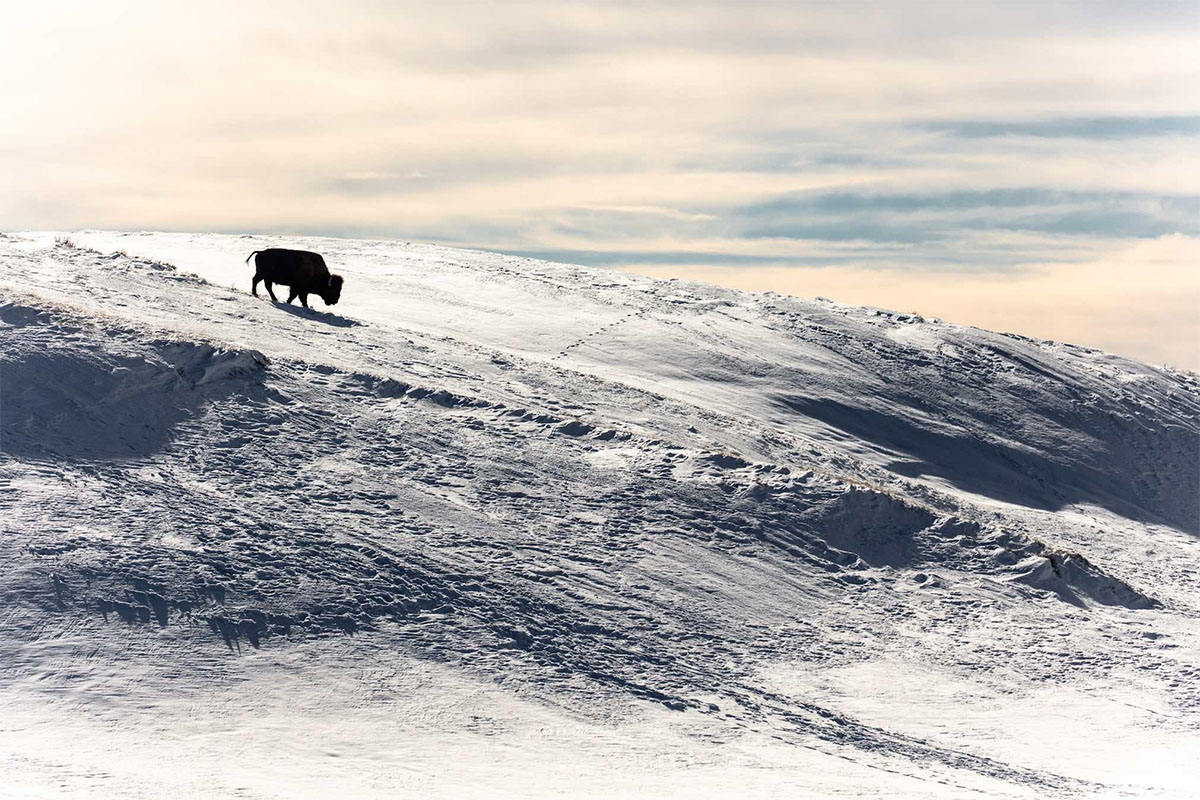
By Todd Wilkinson EBS ENVIRONMENTAL COLUMNIST
Climate change. More people flooding into our region and exacting a larger human footprint on the land. Soaring visitation to national parks and developed parts of national forests. Rising impacts from outdoor recreation. The arrival of chronic wasting disease.
What does it say about us to see the changes coming and yet we behave as if, just by ignoring them, things will always be the same? Or worse, what if we relegate them into a category called “inevitable” which lets us off the hook of responsibility?
What does it say about us when we have elected officials too afraid to say the obvious, based on the argument that if they do, they can never get elected in the first place?
What does it say about us to have politicians continue to defend the continued burning of coal by trying to glibly deny the evidence of climate change documented by the most distinguished scientists in the world?
What does it say about us when the top manager of the National Elk Refuge in Jackson Hole—overseeing the most famous elk herd on Earth— faces certain professional reprisal for warning that artificially feeding thousands of elk are setting us up for a disease disaster?
What does it say about the credibility of the U.S. Forest Service when it approves the continued operation of state feedgrounds in Wyoming with CWD literally on its doorstep?
What does it say about us when commissioners from the 20 counties and mayors and council members from the Greater Yellowstone Ecosystem fail to get together on a regional level and instead remain stuck in their silos?
What does it say about us when the promotion of conservation, in many places, only exacerbates the social and economic inequity for working class people?
What does it say about us when we frame the cause of affordable housing mostly within the context of giving worker bees a place to lodge so that they can be maids, teachers, firefighters, police officers, etc., and not because it’s really a fundamental matter of dignity?
What does it say about us when we disparage coal miners and loggers and ranchers for engaging in resource extraction and yet, in many ways, we’re supplanting those users with industrial strength outdoor recreation whose impacts in many cases may be more permanent and landscape transforming?
What does it say about us when we condemn the conservation movement for lacking human diversity in its ranks, which it obviously does, yet its politically-correct critics fail to understand why building a movement that counts biological diversity and respect for other sentient species is also important?
What does it say about us when we starve federal and state land management agencies of the funds needed to do their job and then we beat those agencies up as allegedly being inept?
What does it say about us when we hear that trophy hunting of grizzlies, after we’ve just brought them back from the brink, is vital to their conservation? And if the argument is that trophy hunting generates money and builds social tolerance, then why aren’t we also sport shooting bald and golden eagles, peregrine falcons, whooping cranes and wild horses?
What does it say about us when we know that wildlife watching is central to our $1 billion annual nature tourism industry in Yellowstone and Grand Teton parks alone, yet we allow popular park research wolves to be shot along national park borders?
What is it saying about us when a state—Montana—chooses to deliberately ignore a report prepared by the National Academy of Sciences that says elk, not bison, represent the most eminent threat of brucellosis transmission to cattle and yet we slaughter bison anyway?
What does it say about us when government agencies are not actively coordinating to halt contradictory management practices often operating at cross purposes and negatively affecting the ecological health of the region, such as: feeding wildlife, permitting oil and gas exploration in wildlife migration corridors, not ending the slaughter of Yellowstone bison for disease reasons, and not demanding cumulative affects studies on the total impact of recreation as different national forests assemble their forest plans?
What does it say about us when we see something like running down wildlife predators with snowmobiles, that is so obviously ethically dubious and runs counter to our beliefs as a society, yet we deflect and diminish the taking of professional responsibility?
What does it say about us when we work for conservation organizations and are reluctant to call out a recreation use and the impacts it’s having because we engage in that same use on weekends and don’t want to alienate ourselves from our friends?
What does it say about us when we wake up in the morning and consciously decide to “get along by going along” even though we know in our guts that if we’re really going to save this place—if we are sincere in our rhetoric about thinking long-term—that we need to challenge status quo thinking and act soon?
The Greater Yellowstone Ecosystem we know today is actually the product of individuals who previously were not afraid to tout the enduring value of conservation and smart thinking.
One of them, the forerunning ecologist Adolph Murie once said, “Let us not have puny thoughts. Let us think on a greater scale. Let us not have those of the future decry our smallness of concept and lack of foresight.”
Todd Wilkinson is founder of Bozeman-based Mountain Journal (mountainjournal.org) devoted to protecting the Greater Yellowstone Ecosystem and a correspondent for National Geographic. He also is author of “Grizzlies of Pilgrim Creek” about famous Jackson Hole grizzly bear 399 available only at mangelsen.com/grizzly.












